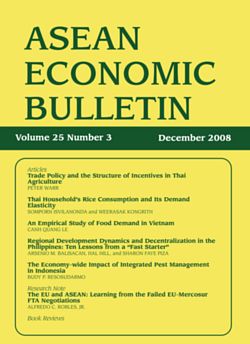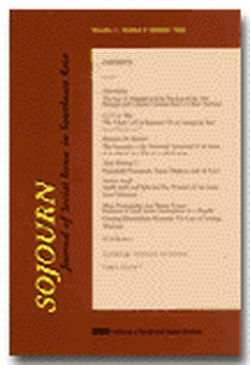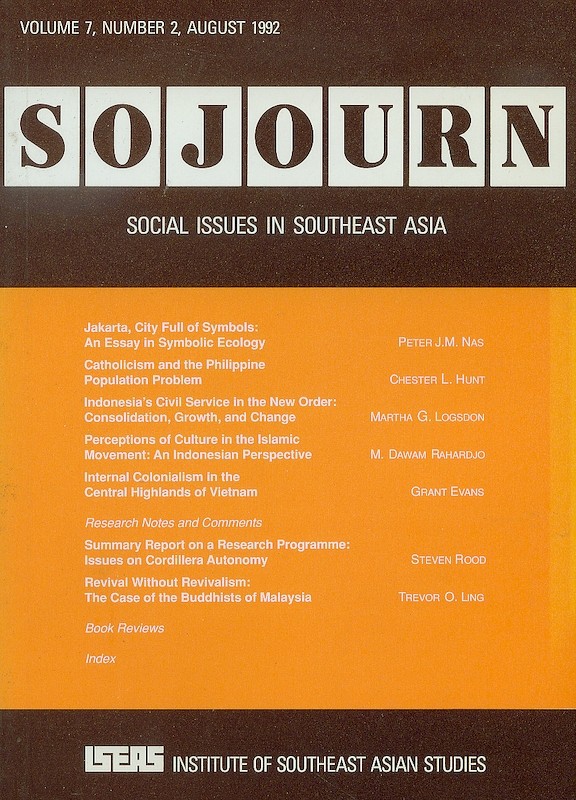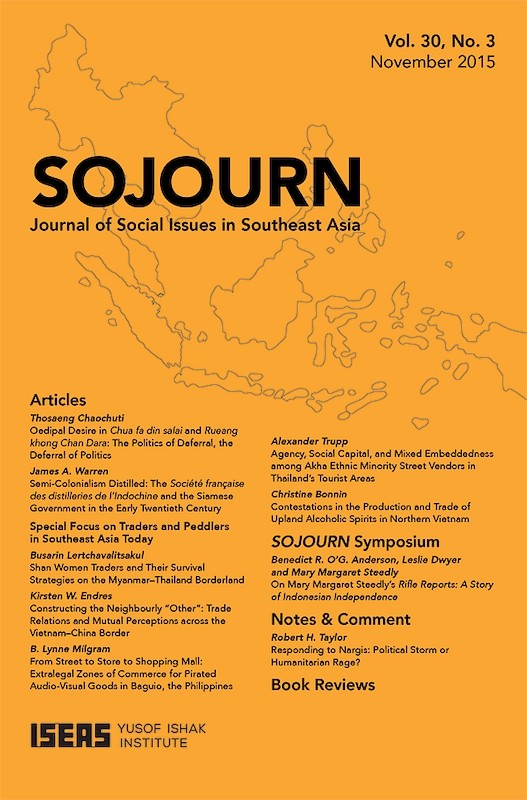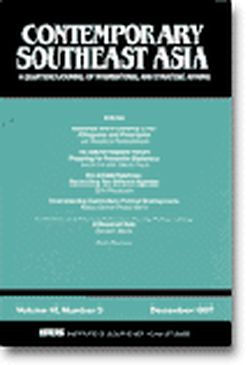SOJOURN: Journal of Social Issues in Southeast Asia Vol. 6/2 (August 1991)
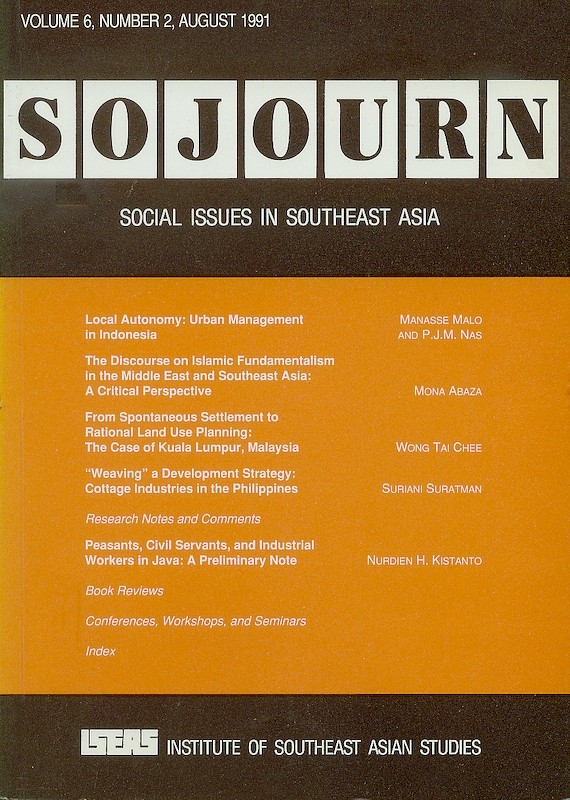
Date of publication:
August 1991
Publisher:
Institute of Southeast Asian Studies
Number of pages:
177
Code:
SJ6/2
Contents
-
Preliminary pages
- ARTICLES
-
Local Autonomy: Urban Management in Indonesia, by Manasse Malo, Peter J. Dean, authors see abstractUrban management is dependent on the possibilities offered by the administrative structure in which it has to operate and it can, accordingly, be adequately analysed from the perspective of local autonomy. In this article, the latter concept is specified in terms of of four components, namely, the legal-constitutional, resources, linkages, and ideology. The structure of the Indonesian administrative system is described and particular emphasis is placed on characteristics such as pluriformity, a two-tiered system, and the dual function of the military. In addition to the historical background of the specific characteristics of Indonesian urban municipalities, an agenda for research on local authorities in Indonesia is presented.
-
The Discourse on Islamic Fundamentalism in the Middle East and Southeast Asia: A Critical Perspective, by Mona Abaza, author see abstractThis paper provides a critical perspective on the discourse produced about Islamic fundamentalism with reference to the Middle East and Southeast Asia. It surveys existing studies on Islamic fundamentalism and attempts to argue that many of the advocations promoted by the fundamentalists bear a strong similarity with traditional Orientalist discourse about Islam. It also attempts to tackle the problem from a global perspective, in which modernity and cross cultural interaction are crucial factors in understanding the phenomenon.
-
From Spontaneous Settlement to Rational Land Use Planning: The Case of Kuala Lumpur, Malaysia, by Wong Tai Chee, author see abstractKuala Lumpur, originally a mining camp, has come to be a modern capital city in less than a century. In the course of its development, Western urban planning values have generally been influential in colonial and post-independence times. Since 1970, however, the adoption of a redistributive urban planning approach derived from Malaysia's New Economic Policy has brought about a dramatic transformation evident in the growth of ethnically mixed middle-class housing estates, a thriving Central Business District, and transport patterns set by a middle-class highly dependent on the car. Inevitably, this transformation has resulted in new challenges which urban planners have to face today.
-
"Weaving" a Development Strategy: Cottage Industries in the Philippines, by Suriani Suratman, author see abstractGovernment development plans although translated into concrete development strategies, policies, and programmes, lack however an understanding of the perceptions and needs of those who are meant to benefit from these efforts. In examining the Philippine Governments efforts to promote cottage industries and the experiences of the producers and entrepreneurs, this paper illustrates the perceptual gap that exists between these two groups On the one hand, the government assumes that its programmes provide more effective solutions to problems of rural unemployment and development, on the other, because of limited channels and ability to articulate their needs, producers and entrepreneurs are unable to express their critiques of these programmes.
- RESEARCH NOTES AND COMMENTS
-
Peasants, Civil Servants, and Industrial Workers in Java: A Preliminary Note, by Nurdien H Kistanto, author see abstractStudies of peasants, civil servants, and industrial workers in Indonesia have tended to treat them in isolation of one another. From a larger historical and socioeconomic perspective, however, it is possible to view their emergence, growth, and roles and functions as the outcome of inter-related processes. Such a perspective seems particularly useful in the light of more recent work on agricultural and non-agricultural activities and occupational patterns in Java. This, however, raises new sets of questions. This note reviews the literature on peasants, civil servants, and industrial workers in an attempt to highlight some of the issues, suggested by this perspective, which form the subject of research currently in progress.
- BOOK REVIEWS
-
BOOK REVIEW: South-East Asia: Languages and Literatures -- A Select Guide. Edited by Patricia Herbert and Anthony Milner., by Christian Bauer, author
-
BOOK REVIEW: Secessionist Movements in Comparative Perspective. Edited by Ralph R Premdas. S W R de A Samarasinghe and Alan B Anderson., by Lian Kwen Fee, author
-
BOOK REVIEW: Sexual Inequality among the Lisu of Northern Thailand. By Otome Klein Hutheesing., by Ronald Renard, author
-
BOOK REVIEW: Educational Research Environments in Southeast Asia. Edited by S Gopinathan and H Dean Nielsen., by Norman C Rothman, author
-
BOOK REVIEW: National Intergration in Indonesia: Patterns and Policies. By Christine Drake., by Douglas Ramage, author
-
BOOK REVIEW: The Tradition of Human Rights in China and Vietnam. By Stephen B Young and Nguyen Ngoc Huy, by Victor C. Funnell, author
- CONFERENCES, WORKSHOPS, AND SEMINARS
-
Workshop on Labour Flows to Taiwan, 6-8 June 1991, Institute of Economics, Academia Sinica, Taipei, Taiwan

